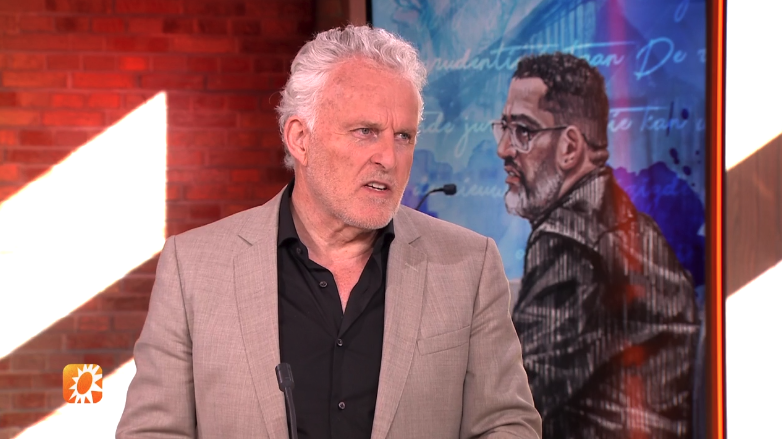
“De in 1956 geboren verslaggever was de afgelopen 30 jaar een moreel instituut geworden in de misdaadbestrijding in Nederland met zijn eigen televisieprogramma over onopgeloste strafzaken.
De moord op Peter de Vries zal geen privézaak blijven. De hele Nederlandse politiek beschouwt het als een staat die wordt bedreigd door criminele ondermijning. Dat was te zien aan de verklaringen van alle bekende politici, die in koor hun afschuw uitten.
Of politiebescherming het leven van de journalist zou hebben gered, blijft een open vraag. Eén ding is nu al zeker: de georganiseerde misdaad in Nederland deinst er niet meer voor terug om een nationale beroemdheid publiekelijk te executeren.”
Die Welt (via Google Translate).
“Derk Wiersum, a lawyer for the same key witness in that trial, was killed in Amsterdam in 2019. The witness’s brother was shot dead in 2018.
Amsterdam and other Dutch cities have been the scene of several shootings over the past decade in which criminals have targeted either each other or those interfering in their crimes. The nearby port of Rotterdam is one of the key gateways for importing cocaine into Europe, and the country is a leader in the illegal production of amphetamines and crystal meth.”
“Caretaker Prime Minister Mark Rutte led the tributes to De Vries in the Netherlands.
“Peter R. de Vries was always dedicated, tenacious, afraid of nothing and no one. Always seeking the truth and standing up for justice,” Rutte said in a tweet. “And that makes it all the more dramatic that he himself has now become the victim of a great injustice.”
“De Vries became famous for reporting the kidnapping of the millionaire brewer Freddy Heineken in 1983. He had his own TV show for 17 years, working with victims’ families, pursuing unsolved cases and exposing miscarriages of justice.
The journalist, who had recently refused police protection after accepting it in the past following death threats, had since last year been acting as an adviser and confidant to the key prosecution witness against Ridouan Taghi, known as the Netherlands’ most wanted criminal.
Press freedom campaigners were equally forceful. The global media watchdog Reporters Without Borders (RSF) said on Thursday De Vries’s death showed Europe was “failing to protect its journalists”.
RSF spokeswoman Pauline Ades-Mevel said there had been “a distinct worsening since 2017”, while Christophe Deloire, the organisation’s secretary general, described the killing as “a new episode in a dark series in Europe”, adding: “Organised crime represents a major threat to journalism in the EU.””
“A regular talk show guest who did not mince his words, with a certain vanity, the well-dressed journalist dared to challenge the country’s biggest criminals – which did not go down well with everyone.
He strongly disagreed with right-wing politicians such as Geert Wilders and Thierry Baudet and campaigned for refugee rights.
His support recently led to a group of unregistered refugees to be recognised as Dutch citizens after many years.
“I emailed all the Dutch media without a response, but he replied within five minutes,” said Yosef Tekeste-Yemane, one of the refugees, from Ethiopia. “He was indignant, wanted to know more. He put our story on the political agenda.””
“De Vries also was known for tenaciously campaigning to find the truth behind the 1994 slaying of a 23-year-old woman, Christel Ambrosius. Two men from the town where she was killed were convicted in 1995 and sentenced to 10 years imprisonment, but De Vries refused to believe they were guilty.
They were acquitted in 2002, and in 2008, another man was convicted of Ambrosius’ killing.”
Kval.
“De Vries was a household name in the Netherlands, renowned for pursuing cold cases, exposing miscarriages of justice and hosting his own televised investigative show for nearly two decades, he had regularly received death threats in connection with several cases.”
“De Vries, who grew up in a religious family in Amstelveen just outside the Dutch capital, first made a name as an intrepid crime reporter for De Telegraaf tabloid, writing about Heineken’s kidnapping which made headlines around the world.
“He managed to break into the circle of trust of two of the kidnappers, Cor van Hout and Willem Holleeder,” the Belgian newspaper Nieuwsblad wrote.”